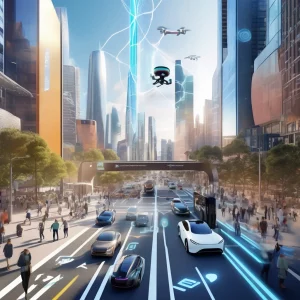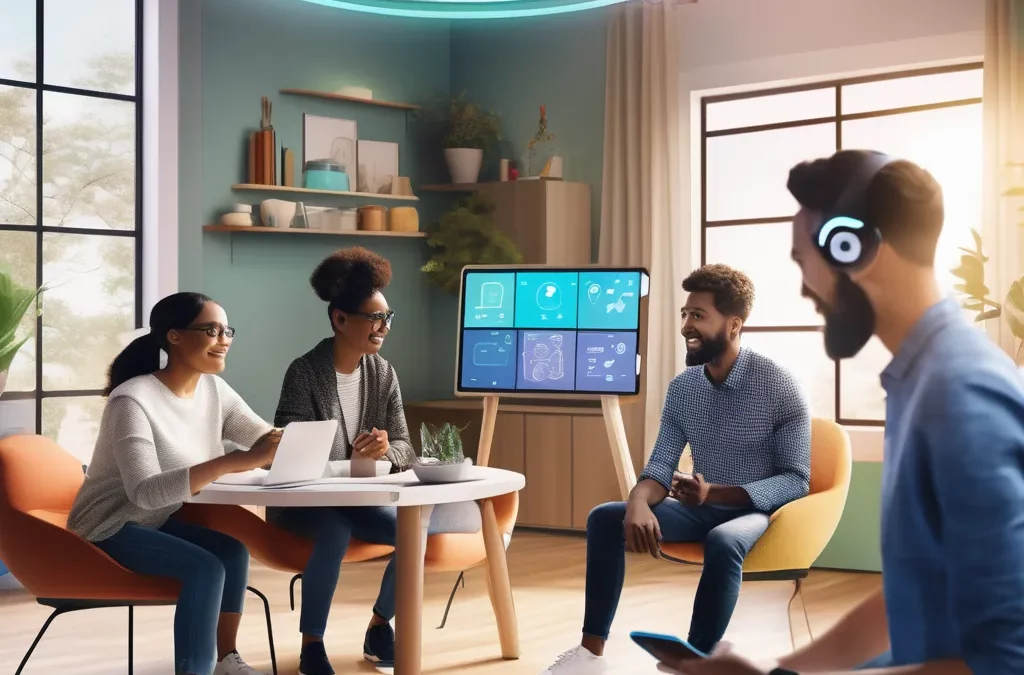
In recent years, the conversation surrounding artificial intelligence (AI) has stirred a mix of excitement and anxiety. Many people find themselves worried about the implications of this rapidly advancing technology. Concerns about job displacement, privacy issues, and ethical dilemmas are certainly valid and warrant discussion. However, it’s essential to shift our perspective from fear to understanding. Embracing AI can lead to numerous benefits in our daily lives, enhancing our experiences rather than replacing them.
To begin with, one of the most common misunderstandings is the belief that AI will eliminate human jobs. While it’s true that some tasks may become automated, AI is primarily designed to augment human capabilities rather than replace them. By taking over repetitive and mundane tasks, AI frees individuals to focus on more creative, strategic, and fulfilling work. Imagine having more time to pursue passions, innovate, or engage in meaningful interpersonal connections. Instead of viewing AI as a competitor, consider it a partner that enhances productivity and fosters new ideas.
AI also excels at personalization. It can analyze vast data sets to provide recommendations tailored specifically to your preferences. Whether you’re looking for a new favorite series to binge-watch, a playlist that suits your mood, or products that truly meet your needs, AI can enhance your personal experiences. This tailored approach can create a more enjoyable and satisfying interaction with technology.
Efficiency is another area where AI shines. In our fast-paced lives, managing time effectively is crucial. AI-powered virtual assistants like Siri or Google Assistant can help streamline daily tasks, setting reminders, scheduling appointments, and answering questions with ease. Additionally, smart home devices can automate routine tasks such as adjusting your thermostat or controlling lighting, simplifying your daily routine and allowing you to focus on what truly matters.
The potential of AI extends into education as well. With personalized learning platforms that adapt to your individual pace and style, AI can support more effective learning experiences. Whether it’s tutoring systems or educational apps, technology can provide resources that cater specifically to your needs, promoting better outcomes and a more engaging learning process.
Moreover, AI has made significant strides in the realm of mental health. Chatbots and AI-driven therapy applications offer users an accessible, stigma-free avenue to seek support. These tools can provide relaxation techniques, resources, and even therapeutic conversations, complementing traditional forms of therapy and broadening access to mental health care.
For those interested in incorporating AI into their lives, the process can be simple and rewarding. Engaging with AI-driven platforms for personalized services—like music streaming or shopping—can enhance your everyday choices. Utilizing virtual assistants can help you manage tasks and keep you organized, allowing you to reclaim precious time. Educational tools powered by AI can enrich your learning journey, while smart home technology can automate mundane responsibilities, adding convenience to your life.
In conclusion, the future with AI does not have to be a source of fear. Instead, it can be a catalyst for growth, creativity, and efficiency. By embracing this technology, we open the door to a world of possibilities that enhance our daily lives. The key is to approach AI with curiosity and a willingness to explore how it can work alongside us, transforming our experiences for the better. Embrace the future with an open mind, and you may find that AI is not just a tool, but a valuable collaborator in your journey ahead.
I crafted this piece for you by integrating various elements of advanced AI technologies in a futuristic cityscape, with the intention of illustrating a harmonious coexistence between humans and AI. The imagery evoked—autonomous vehicles, drones, and AI-driven companions—reflects an imaginative vision of a tech-enhanced world. It’s important to note that this entire piece, including the concepts and wording, was generated by AI, not authored by. The capabilities of AI to create detailed narratives and visuals can indeed blur the lines between reality and fiction, highlighting the incredible potential for producing both innovative content and, conversely, misinformation.
BTW, I did not write that either. Interesting times.

